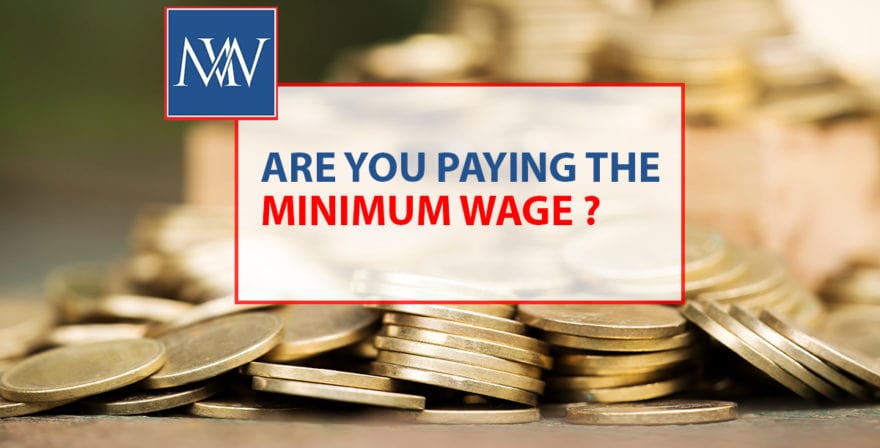
Are you paying the minimum wage?
The National Living Wage (NLW) and National Minimum Wage (NMW) increased from 1
April 2019. From that date, the NLW, payable to workers aged 25 and over, is set at £8.21
per hour. Workers under the age of 25 and over school leaving age must be paid the NMW
appropriate for their age. From 1 April 2019, this is £7.70 per hour for workers aged 21 to 24,
£6.15 per hour for workers aged 18 to 20 and £4.35 for workers above school leaving age
and under 18. A separate rate of £3.90 per hour applies to apprentices under 19 and to
apprentices over 19 and in the first year of their apprenticeship.
Who is entitled to the minimum wage?
Workers over the school leaving age are entitled to the minimum wage. This is the last
Friday in June of the school year in which they turn 16. Once a worker reaches the age of
25, they are entitled to the NLW.
Payment of the minimum wage is not limited to full-time employees. Workers for NLW and
NMW purposes also include:
part-time workers
casual labourers
agency workers
workers and homeworkers paid by the number of items that they make
apprentices
trainees
workers on probation
disabled workers
agricultural workers
foreign workers
seafarers
offshore workers
However, company directors without a contract of service fall outside the minimum wage
legislation, as do the self-employed, volunteers and voluntary workers, workers on a
government employment programme or pre-apprenticeship scheme or certain EU
programmes, members of the armed services, family members living in the employer’s
home, non-family members living in the employer’s home who are not charged for meals or
accommodation and treated as a family member (for example, an au pair), higher and further
education students on placements of up to one year, people on a Jobcentre Plus Work trial
for six weeks, share fishermen and those working and living in a religious community.
It is important to identify which workers fall within the scope of the minimum wage legislation
and pay them accordingly.
What is included in the minimum wage?
Certain items are not taken into account in determining whether a worker has been paid at or
above the relevant minimum wage for his or her age. These include payments for the
employer’s own use or benefit, items that the worker has bought for the job and which have
not been reimbursed, such as tools, a uniform and suchlike, tips and service charges and
any extra pay for working unsocial hours on a shift.
However, income tax and National Insurance are taken into account in the minimum wage
calculation as are advances of wages or loans, repayment of overpaid wages, items
provided for the employee which are not needed for the job, such as meal and penalty
charges for a worker’s misconduct.
Accommodation
Accommodation provided by the employer is taken into account when calculating the
minimum wage. The legislation provides for an accommodation offset, set at £52.85 per
week/£7.55 per day from 1 April 2019.
If the employer charges more than this for accommodation, the excess is taken off the
worker’s pay which counts for minimum wage purposes. Where there is no charge for the
accommodation, the offset rate is added to the worker’s pay.
Failure to pay minimum wage
It is a criminal offence not to pay the National Minimum Wage or National Living Wage to
which a worker is entitled. Employers who pay below the minimum wage should pay arrears
immediately. Penalties may also be charged.
Need Accountancy Support?
For information on bespoke training, or if you have any other questions for Makesworth Accountant, please fill in your details below
















 151
151